
Otto Abels Harbach, born Otto Abels Hauerbach was an American lyricist and librettist of nearly 50 musical comedies and operettas. Harbach collaborated as lyricist or librettist with many of the leading Broadway composers of the early 20th century, including Jerome Kern, Louis Hirsch, Herbert Stothart, Vincent Youmans, George Gershwin, and Sigmund Romberg. Harbach believed that music, lyrics, and story should be closely connected, and, as Oscar Hammerstein II's mentor, he encouraged Hammerstein to write musicals in this manner. Harbach is considered one of the first great Broadway lyricists, and he helped raise the status of the lyricist in an age more concerned with music, spectacle, and stars. Some of his more famous lyrics are "Smoke Gets in Your Eyes", "Indian Love Call" and "Cuddle up a Little Closer, Lovey Mine".

No, No, Nanette is a musical comedy with lyrics by Irving Caesar and Otto Harbach, music by Vincent Youmans, and a book by Otto Harbach and Frank Mandel, based on Mandel's 1919 Broadway play My Lady Friends. The farcical story involves three couples who find themselves together at a cottage in Atlantic City, New Jersey, in the midst of a blackmail scheme, focusing on a young, fun-loving Manhattan heiress who naughtily runs off for a weekend, leaving her unhappy fiancé. Its songs include the well-known "Tea for Two" and "I Want to Be Happy".

William Mercer Cook, better known as Will Marion Cook, was an American composer, violinist, and choral director. Cook was a student of Antonín Dvořák. In 1919 he took his New York Syncopated Orchestra to England for a command performance for King George V of the United Kingdom, and tour. Cook is probably best known for his popular songs and landmark Broadway musicals, featuring African-American creators, producers, and casts, such as Clorindy, or The Origin of the Cake Walk (1898) and In Dahomey (1903). The latter toured for four years, including in the United Kingdom and United States.

In Dahomey: A Negro Musical Comedy is a landmark 1903 American musical comedy described by theatre historian Gerald Bordman as "the first full-length musical written and played by blacks to be performed at a major Broadway house." It features music by Will Marion Cook, book by Jesse A. Shipp, and lyrics by poet Paul Laurence Dunbar. It was written by Jesse A. Shipp as a satire on the American Colonization Society's back-to-Africa movement of the earlier nineteenth century.

Runaways is a musical which was written, composed, choreographed and directed by Elizabeth Swados, about the lives of children who run away from home and live on the city streets. The characters were taken from workshops conducted by Swados with real-life runaways in the late 1970s.
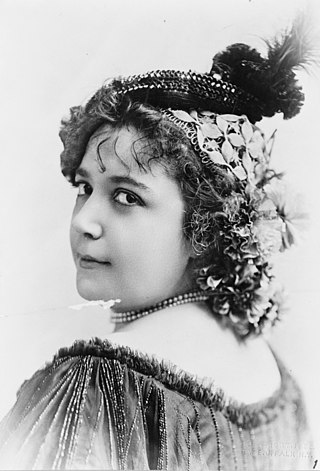
Fay Templeton was an American actress, singer, songwriter, and comedian.
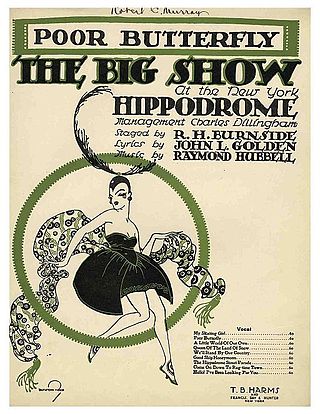
John Raymond Hubbell was an American writer, composer and lyricist. He is best known for the popular song, "Poor Butterfly".

The Princess Theatre was a joint venture between the Shubert Brothers, producer Ray Comstock, theatrical agent Elisabeth Marbury and actor-director Holbrook Blinn. Built on a narrow slice of land located at 104–106 West 39th Street, just off Sixth Avenue in New York City, and seating just 299 people, it was one of the smallest Broadway theatres when it opened in early 1913. The architect was William A. Swasey, who designed the Winter Garden Theatre two years earlier.

What's Up? is a musical notable as the first Broadway stage collaboration by Lerner and Loewe, with book by Arthur Pierson and Alan Jay Lerner, lyrics by Lerner, and music by Frederick Loewe.

Oh, Lady! Lady!! is a musical with music by Jerome Kern, a book by Guy Bolton and P. G. Wodehouse and lyrics by Wodehouse. It was written for the Princess Theatre on Broadway, where it played in 1918 and ran for 219 performances. The story concerns an engaged young man, Bill, whose ex-fiancée arrives unexpectedly on his wedding day. Bill works to convince his old flame that he was not worthy to marry her, but his clumsy efforts do not make him look good to his new fiancée, whose mother already dislikes Bill. A couple of crooks cause further complications.
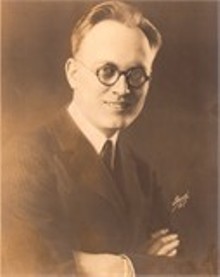
Harlan Thompson was an American theatre director, screenwriter, lyricist, film director, and film and television producer. He wrote the Broadway hit Little Jessie James (1923–24), and several other Broadway musicals. He moved to Hollywood, where he was in turn a writer, director and producer.
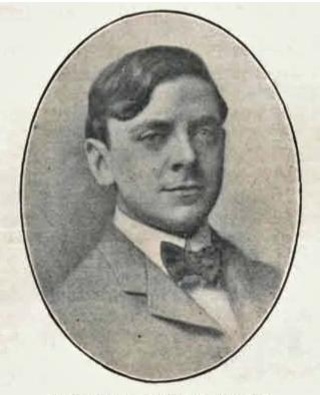
Addison Burkhardt was a librettist and lyricist from about 1903 to 1922 and a Hollywood script and scenario writer thereafter.

Nan Halperin was a Russian immigrant to the USA who became a well-known singing comedian. She played in vaudeville at an early age, and later starred in musical comedies on Broadway such as Little Jessie James (1923).
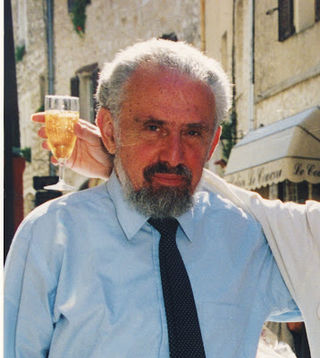
Gerald Martin Bordman was an American theatre historian, best known for authoring the reference volume The American Musical Theatre, first published in 1978. In reviewing an updated version of American Musical Theatre in 2011, Playbill wrote that the book had "altered the scope of American musical theatre history" and "remained the only book of its kind, and an invaluable one."

Development of musical theatre refers to the historical development of theatrical performance combined with music that culminated in the integrated form of modern musical theatre that combines songs, spoken dialogue, acting and dance. Although music has been a part of dramatic presentations since ancient times, modern Western musical theatre developed from several lines of antecedents that evolved over several centuries through the 18th century when the Ballad Opera and pantomime emerged in England and its colonies as the most popular forms of musical entertainment.

Madge Lessing was a British stage actress and singer, panto principal boy and postcard beauty of Edwardian musical comedy who had a successful career in the West End in London, Europe and on Broadway from 1890 to 1921 and who made a number of early film appearances in Germany for director Max Mack.

The Greenwich Village Follies was a musical revue that played for eight seasons in New York City from 1919 to 1927. Launched by John Murray Anderson, and opening on July 15, 1919, at the newly constructed Greenwich Village Theatre near Christopher Street, the show's success has been credited in part to its timing: as a non-union production, it was unaffected by the then-current actors' strike.

A Knight for a Day is a musical with music by Raymond Hubbell and a book and lyrics by Robert Bache Smith. It debuted in 1907. The musical held the record for longest running play in Chicago. East Coast and West Coast versions were also performed. The play was produced by B. C. Whitney.

Alice Oates was an actress, theatre manager and pioneer of American musical theatre who took opéra bouffe in English to all corners of America. She produced the first performance of a work by Gilbert and Sullivan in America with her unauthorised Trial by Jury in 1875, the first American production of The Sultan of Mocha (1878) and an early performance of H.M.S. Pinafore (1878).
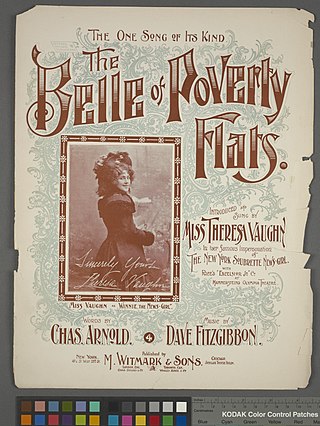
Excelsior, Jr. is an 1895 musical comedy with music by George Lowell Tracy, A. Baldwin Sloane, and Edward E. Rice, and also with lyrics by Robert Ayres Barnet.



















